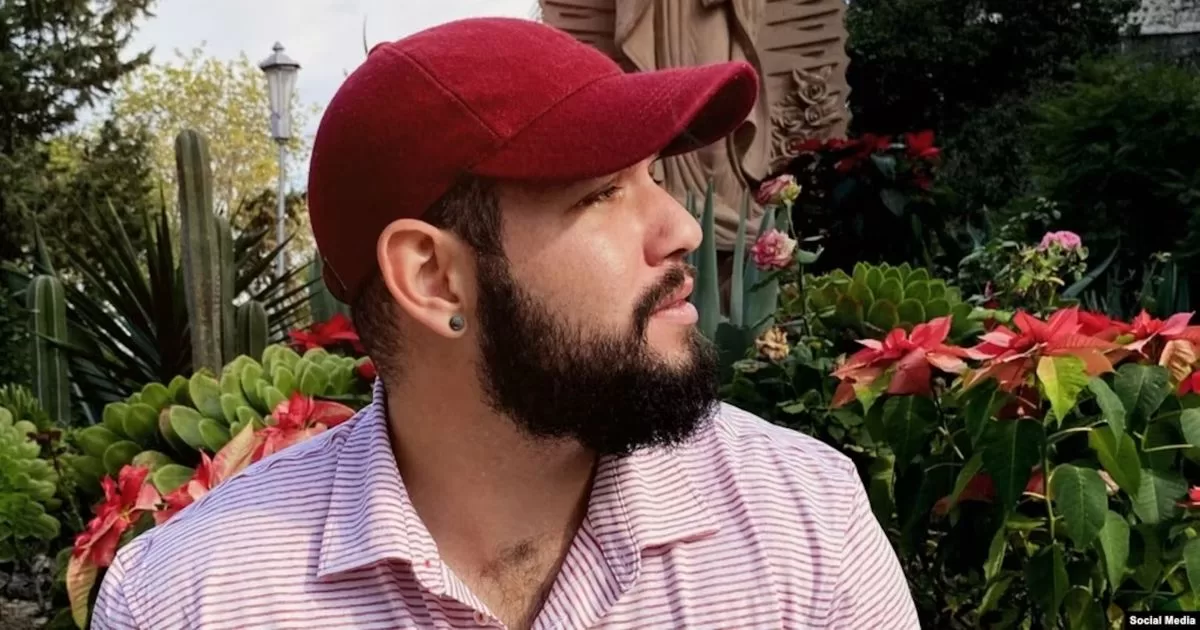MIAMI.- Álvaro Hernández, a 22-year-old Cuban, was fired from his job last September after publishing a message on the social network X in which he said “Down with the Dictatorship.”
Hernandez worked as community manager for Mad Woman Agency, one of the Micro Small and Medium Enterprises (MSMEs) approved by the Havana regime. The company, which provides advertising services to other private and state businesses, launched an internship earlier this year for people who were interested in joining the team.
I studied piano at the University of the Arts and lived rented in Vedado. I needed to generate income to be able to pay all my expenses. That was a good option because it allowed me to do it from home and be able to continue school,” the young man explained to Martí Noticias.
The publication for which Álvaro was fired had barely received two likes and had a reach of 50 people when “someone passed it on to one of the owners of the agency.” According to him, they called him to the office and gave him a “quite ambiguous” explanation of the reasons why they had to fire me. That same day they took away all my access to the agency’s social networks and left me almost on the street because that was my only source of income.”
“I spent my life trying not to get involved in politics. I have been studying piano since I was eight years old and I was very focused on my career,” says the young man, who remembers how the demonstrations of July 11, 2021, when thousands of Cubans took to the streets to demand freedom, completely changed his way of looking. reality.
After graduating from the Art School, he went to the Holguín Conservatory of Music. He was the only one in his province that year who achieved the level pass to the University of the Arts (ISA).
“When we entered school there was a lot of tension. Dozens of students had signed a letter calling for the release of one of the students who had been detained during the protests. They threatened to take away their titles from all of them and we, the first years, met several times to clarify that we couldn’t do it either if our ideology did not correspond to that of the regulations.”
When Álvaro was in his second year of college, he started working at Mad Woman Agency. “I immediately learned that several of the clients they served were figureheads of the Cuban government, “but like the vast majority, I preferred to endure because I needed the money,” he says.
“In Cuba there is no private sector, all those successful MSMEs that you see are directly associated with the Communist System,” denounces the young man.
Now he is one of the thousands of Cubans waiting in Mexico for their CBP One appointment to request political asylum at the United States border.
“That dismissal was the straw that filled the camel’s back,” he says. His plans were to graduate from university but “I realized that it made no sense to continue waiting in a country where there is no future.” Now, he confesses, he is happy to know that he will not have to “work for that government anymore.”
The regime approved the first 35 micro, small and medium-sized enterprises (MSMEs) in September 2021 as one of the measures to boost productive forces in the midst of the strong economic crisis. There are currently about 10,000 in the country, according to data offered last December by the Minister of Economy and Planning (MEP), Alejandro Gil Fernández, in the Round Table program.
According to activists and some experts, several of these companies have been created by the military, senior officials of the regime, and family or friends of the Castro leadership.
“We see with astonishment how the government tries to create a supposed private sector under its control in order to present it as an opening and evade external sanctions on the state sector,” questioned in a recent statement three opposition organizations, the League of Independent Peasants, the Association Independent Union of Cuba (ASIC) and the Latin American Federation of Rural Women (FLAMUR).
Economist Pedro Monreal, who has published several analyzes on the subject, pointed out that the model approved by the regime differs from how it works in the rest of the world. “The available information indicates a distribution of scale categories very different from MSMEs in other countries. In Cuba, instead of “micro” companies largely predominating, they are a minority (22%) compared to small (50.5%) and medium-sized companies (27.5%).”
“The official priorities for MSMEs in Cuba were productive transformation, exports, and increasing the population’s satisfaction, but the results are different: just over a third operate in production, they hardly export, and they sell at high prices” clarified the expert on the social network
Mad Woman Agency was approved as an MSME in August 2022. The company did not respond to a request for comment from Martí Noticias for this report.
Source: Martí News

